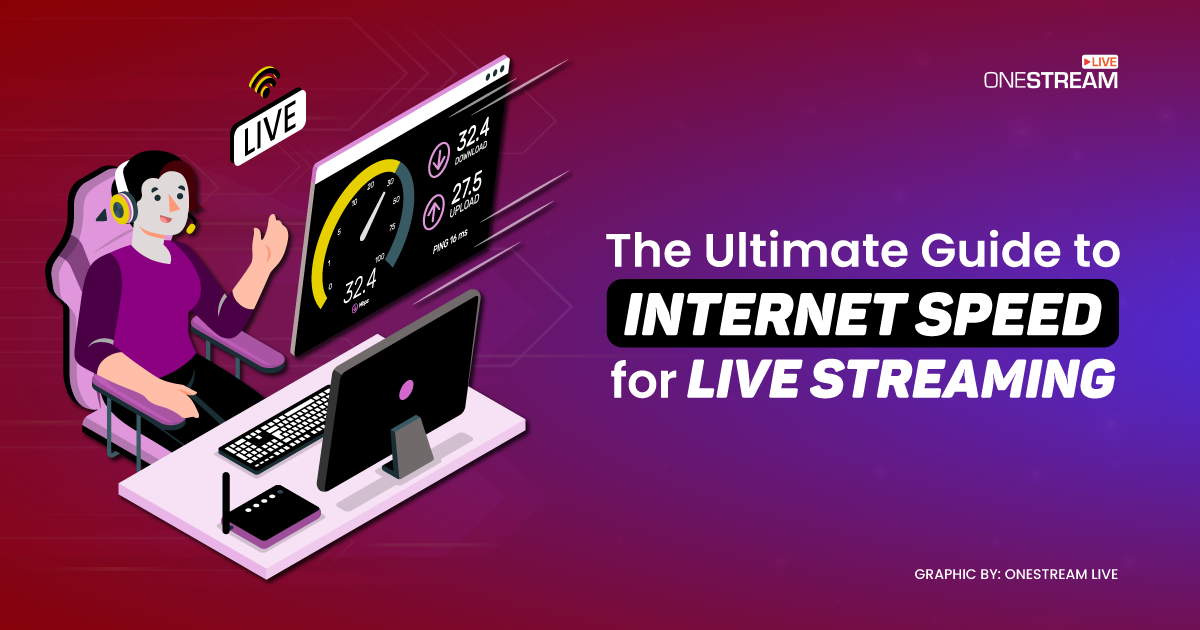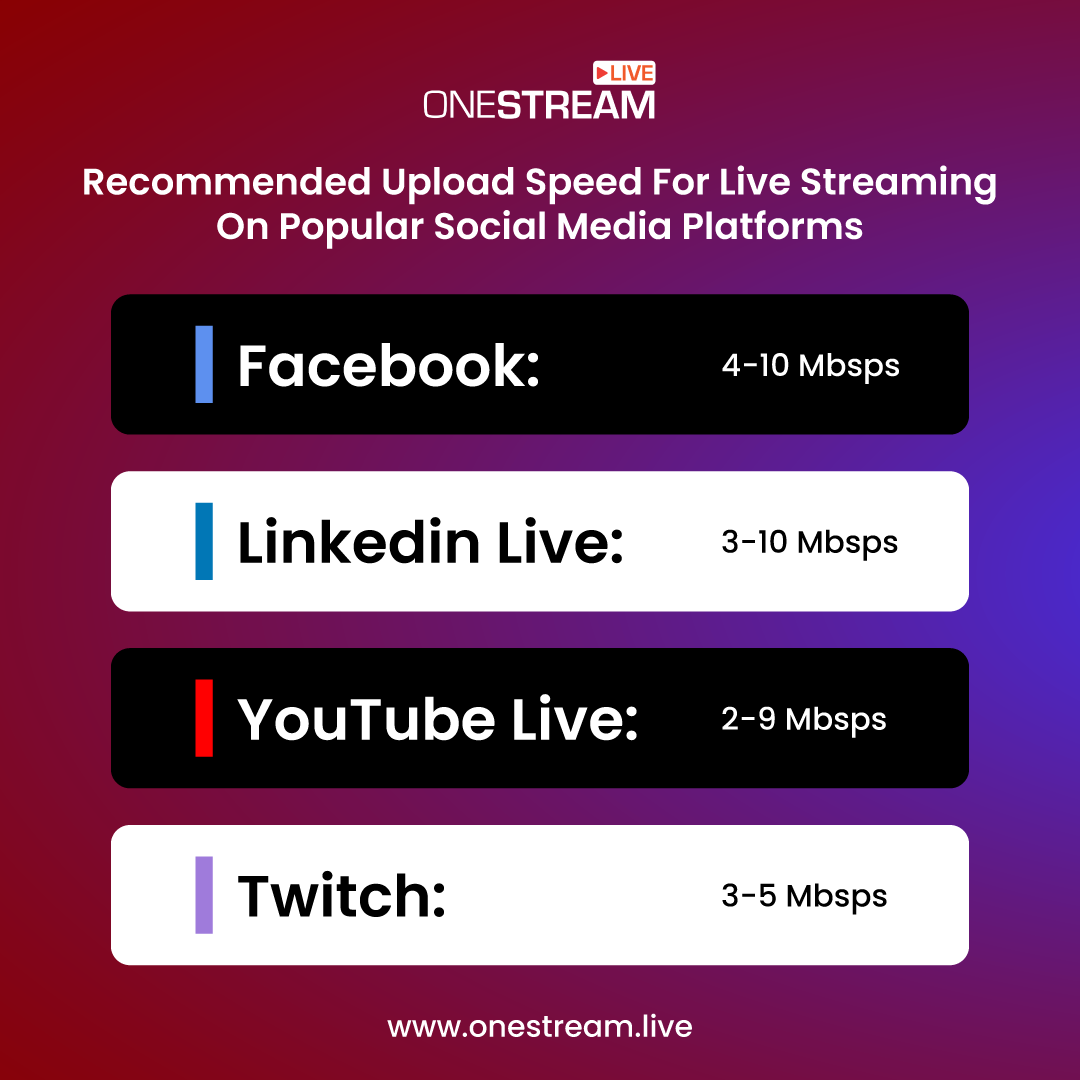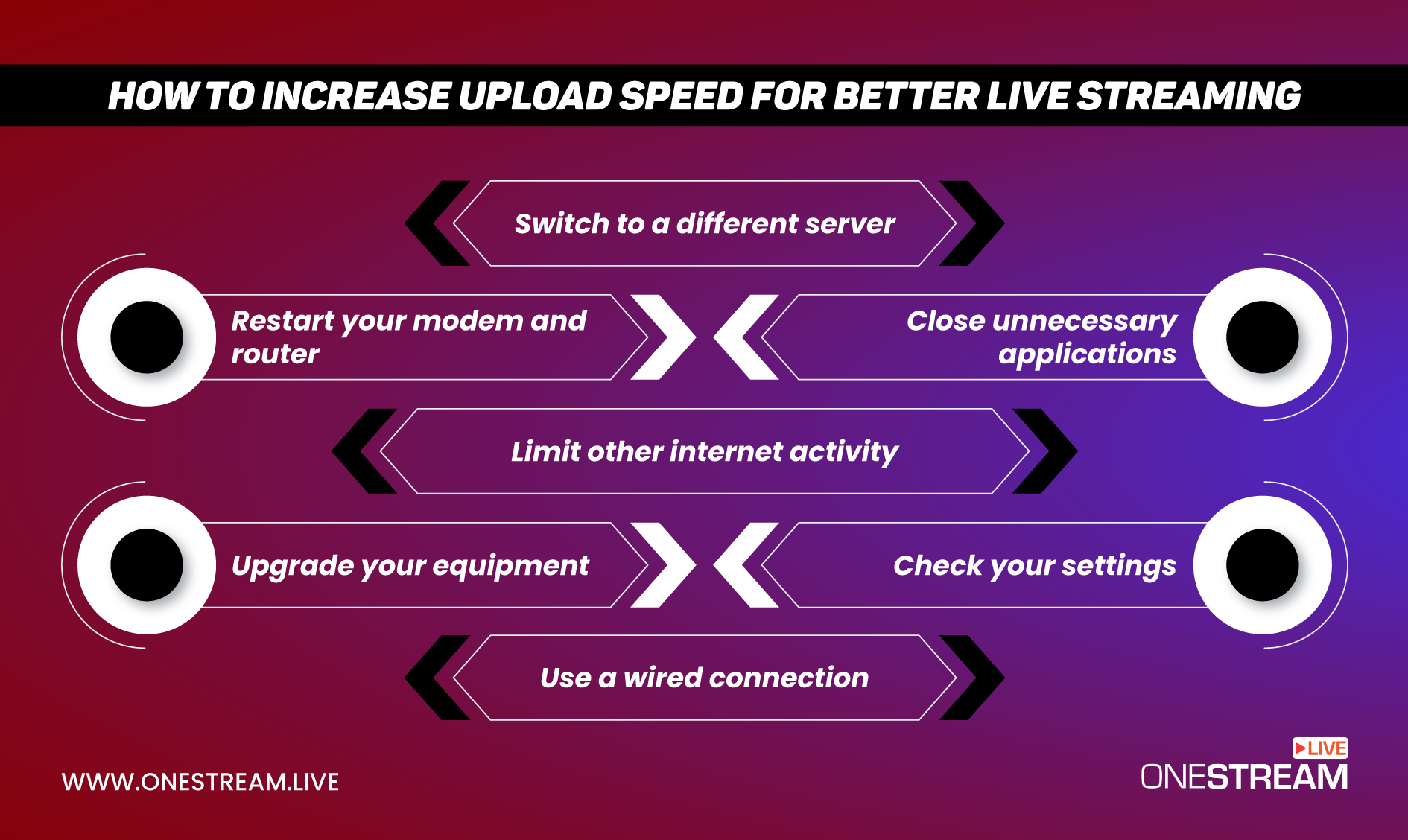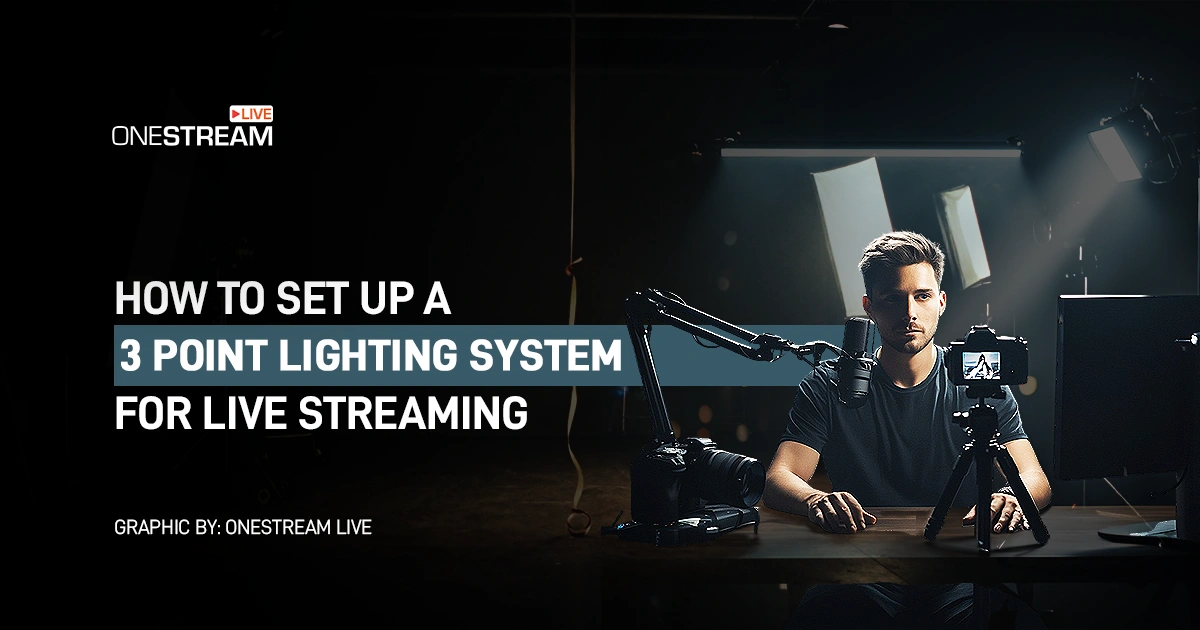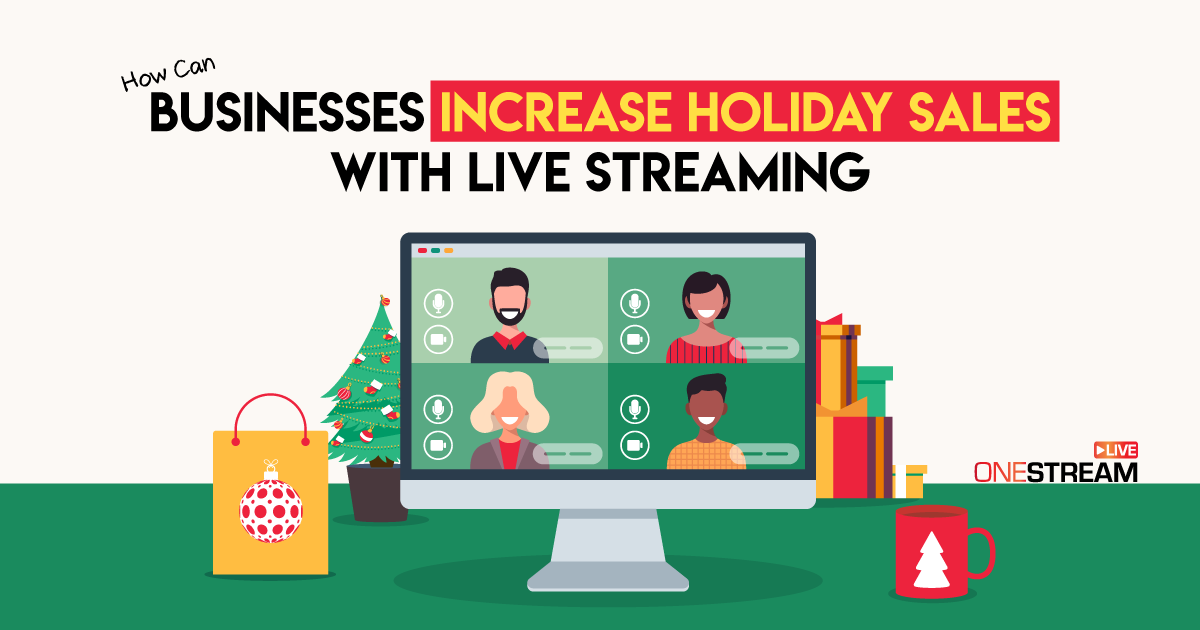In today’s digital age, live streaming has become increasingly popular as a means of sharing real-time content with a global audience. Whether you’re a gamer, content creator, or an individual eager to connect with others through live video, having a good internet connection is crucial for a seamless streaming experience. This guide aims to shed light on the significance of internet speed for live streaming and provide valuable insights to help you optimize your setup.
Understanding Internet Speed
Internet speed refers to the rate at which data is transmitted between your device and the Internet. It determines how quickly information travels back and forth, affecting your ability to stream videos, download files, browse websites, and engage in online activities. Internet speed is measured in terms of data transfer rates, typically expressed in bits per second (bps) or its multiples, such as kilobits per second (Kbps), megabits per second (Mbps), and gigabits per second (Gbps).
Speed vs. Upload Speed
Download speed refers to the rate at which data is received by your device from the internet. It affects how quickly you can stream videos, download files, and view webpages. On the other hand, upload speed refers to the rate at which data is sent from your device to the internet. It is important for activities like live streaming, video conferencing, and uploading files to cloud services. Both download and upload speeds contribute to your overall internet speed, but their roles differ based on the type of online activity you are engaged in.
Significance of Internet Upload Speed for Live Streaming
Importance of Internet Upload Speed for Live Streaming
Internet upload speed is crucial for live streaming as it determines how quickly you can send data from your device to the Internet.
The Role of Higher Upload Speed
A higher upload speed allows you to transmit a larger amount of data in real time, ensuring a smooth and uninterrupted streaming experience for your viewers.
Avoiding Buffering and Lag
Slow upload speeds can result in buffering, lag, and poor video quality during live streaming, frustrating your audience and potentially causing them to leave.
Broadcasting Streams with Minimal Delays
Having a sufficient upload speed ensures that your stream is broadcasted with minimal delays, enabling real-time interaction and engagement with your viewers through chat or comments.
The Importance of Upload Speed for HD and UHD Streaming
Upload speed is particularly important for live streaming platforms that support high-definition (HD) or ultra-high-definition (UHD) video resolutions. Faster upload speeds enable you to transmit higher-quality video without sacrificing clarity or experiencing buffering issues.
Ensuring Optimal Performance
It is recommended to have an upload speed that is at least 3-4 times higher than the bitrate (data rate) you plan to stream at. This allows for a comfortable margin and helps prevent performance issues.
Choosing the Right ISP Plan for Live Streaming Needs
Internet service providers (ISPs) often offer different upload speed tiers, so it’s important to choose a plan that meets your live streaming requirements.
Enhancing Stream Quality and Reliability
If you frequently engage in live streaming, investing in a high-speed internet connection with a robust upload speed can significantly enhance the quality and reliability of your streams.
What is a Good Internet Upload Speed for Live Streaming?
Typically, an ideal upload speed is around 10 Mbps. The quality of the upload speed can be influenced by factors such as resolution and frame rate. To illustrate, suppose you are live streaming with a 4K resolution; in that case, a higher upload speed would be necessary.
Factors That Affect Streaming Speed
Now, let’s delve deeper into the technical realm and break down three essential streaming metrics: bandwidth, video bitrate, and resolution.
Bandwidth
Bandwidth is like the lifeline of broadcasting. It determines the internet speed you need and even impacts your streaming costs. It’s the amount of data transferred during a stream, and it’s influenced by factors such as video bitrate and resolution. Simply put, the more bandwidth you use, the higher the quality and traffic of your stream.
Video Bitrate
Speaking of video bitrate, it measures the amount of data transferred over a specific time period. It’s often quantified in bits per second (bps) or kilobits per second (kbps) for smaller files. Video bitrate can be adjusted at the encoder level, allowing you to control the video’s resolution and quality. Higher-resolution videos naturally require more bitrate, leading to increased bandwidth consumption.
Video Resolution
The video resolution is the magical ingredient that shapes your streaming visuals. It’s all about the number of pixels forming the video frame, determining the image quality on your screen. The more pixels, the better the video quality. For instance, a video with a resolution of 1920×1080 (also known as 1080p) has 1920 pixels in width and 1080 pixels in height. Keep in mind that higher-resolution streams gobble up more bandwidth, meaning you’ll need a speedier internet connection to handle the visual feast. If you attempt to stream a high-resolution video with a sluggish internet, you might end up with a laggy or choppy stream that leaves your viewers feeling less than satisfied.
Remember, the recommended upload speed for streaming varies based on the video quality you aim to achieve. So, take a moment to assess your streaming requirements and adjust your internet speed accordingly. With the right internet speed recipe, your live streaming endeavors will be as smooth as a perfectly mixed concoction.
How to Measure Your Upload Speed Before Going Live?
- Visit Speedtest.net.
- Select the “Go” button.
- Take note of the upload speed.
Verify the server location. Speedtest.net will automatically select the server of your Internet Service Provider (ISP) that is closest to your location. The proximity to the server determines the quality of your download and upload speed.
How To Increase Upload Speed For Live Streaming
Use a wired connection
Connect your device directly to your modem with an Ethernet cable for the fastest possible speeds.
Limit other internet activity
If other people or devices are using your internet connection, it can slow down your speeds. Try to limit their usage or ask them to disconnect when you need to use the internet for something important.
Upgrade your equipment
If your modem or router is old, it may not be able to support the speeds that your internet service provider is offering. Consider upgrading to newer equipment.
Check your settings
Make sure that your modem and router are set up correctly and that your device is using the correct network settings.
Close unnecessary applications
If you have a lot of applications open, they can be using up bandwidth and slowing down your internet connection. Close any applications that you’re not using.
Restart your modem and router
Sometimes, a simple restart can fix internet connection problems. Unplug your modem and router for 30 seconds, then plug them back in and wait for them to start up.
Switch to a different server
If you’re playing an online game or streaming a video and you’re experiencing lag, try switching to a different server. This may improve your connection and reduce lag.
Bonus Tip: Using dedicated streaming software can significantly improve your upload speed and overall streaming performance. These software solutions are specifically designed to optimize data transmission and prioritize streaming data, resulting in smoother and higher quality live streams. By leveraging the advanced features and optimizations offered by streaming software, content creators can deliver their broadcasts with reduced latency and minimized buffering, providing an enhanced viewing experience for their audience.
Conclusion
In summary, while a minimum speed may be sufficient for basic streaming, prioritizing a higher upload speed is essential for those aiming to deliver top-notch live streaming experiences. From real-time data transmission to superior video and audio quality, a faster upload speed empowers content creators to engage their audience effectively and maintain a competitive edge in the ever-growing world of live streaming.
OneStream Live is a cloud-based live streaming solution to create, schedule, and multistream professional-looking live streams across 45+ social media platforms and the web simultaneously. For content-related queries and feedback, write to us at [email protected]. You’re also welcome to Write for Us!

